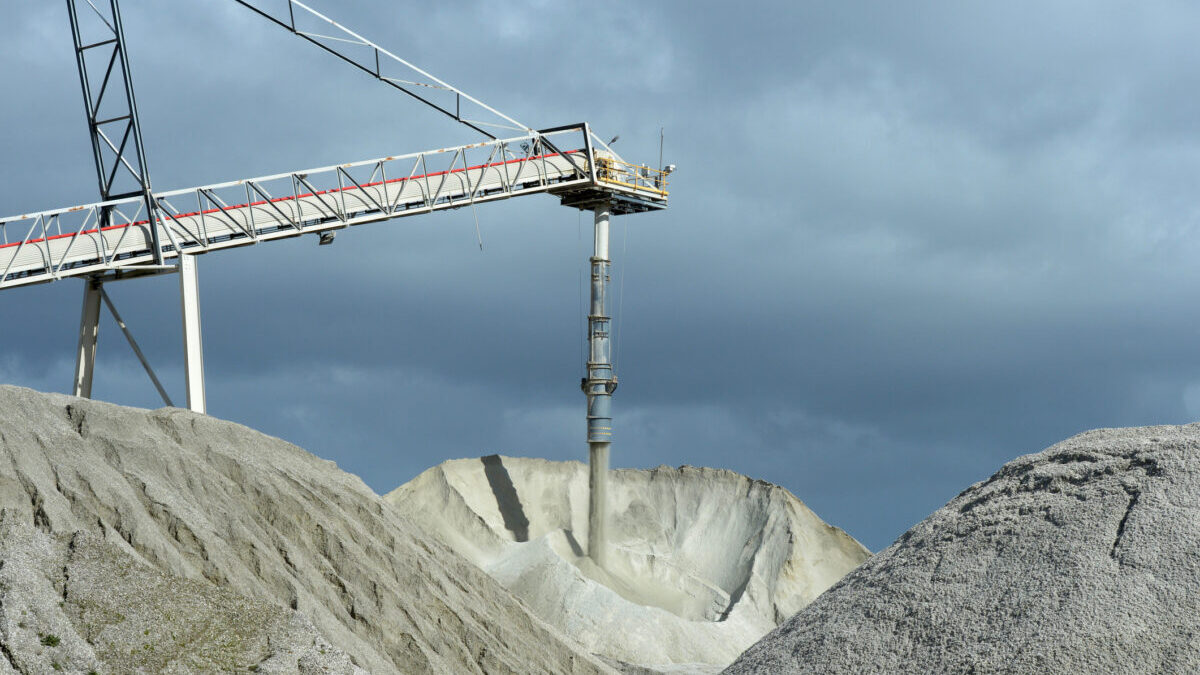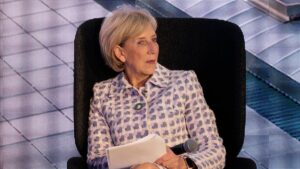Monsters of Rock: Iluka boss makes impassioned plea for investment in local downstream rare earths industry

Pic: Carla Gottgens/Bloomberg via Getty Images
- Iluka boss Tom O’Leary is issuing an impassioned plea for investment in Australia’s downstream rare earths industry
- O’Leary warns we’ll fall behind if we continue to operate as a quarry for others
- Comes amid criticism of lack of support for miners in yesterday’s Federal Budget
Don’t quarry, be happy is the message coming from the mouth of Iluka Resources (ASX:ILU) boss Tom O’Leary, who used the ASX 100 mineral sands producer’s AGM today to deliver an impassioned plea for Australia to prioritise downstream processing in a critical minerals race against China.
The company is building Australia’s first rare earths refinery at Eneabba near Geraldton, where it plans to produce neodymium, praseodymium, dysprosium and terbium from monazite stockpiles for sale in markets like electric vehicle motors and wind turbines.
Iluka secured a low-cost $1.25 billion loan from Canberra under the previous Morrison Government early last year. It was criticised quietly by some corners of the industry, who were scornful of the idea of public money being used to prop up a business with the heft to source its own financing.
But since then competition to bring critical minerals investment has intensified with the passage of America’s Inflation Reduction Act and aggressive loan and grant programs through its energy and defence departments, which will heavily incentivise the construction of rare earths, graphite, lithium, nickel and cobalt refineries in the USA.
Coming on the heels of a Federal Budget pulled into surplus by roaring commodity prices but which did little to add to investment in the sector save a $57.1 million promise for the established Critical Minerals International Partnerships Program, O’Leary said the time was nigh to ensure Australia moves beyond its reputation as the world’s quarry.
“Insofar as rare earths are concerned, our ambition should not be limited to being the quarry of others; refining, metallising and eventually magnetising these key products for ourselves and our international partners that need them is a rational and, with appropriate policy settings and commitment, an achievable ambition,” he said.
“Some argue this is unrealistic, citing the historical challenges of establishing heavy industry in an environment where Australia’s proposed customers were already well established and dominant incumbents.”
A ‘different opportunity’
To that end O’Leary says Australia has a unique opportunity when it comes to rare earths.
Historically it has not been our forte. Lynas Rare Earths (ASX:LYC) owns the western world’s largest deposit at Mt Weld, but for the past decade its refining has taken place in Malaysia despite ongoing political opposition there to its disposal of low level radioactive waste.
It will have to undertake the cracking and leaching step which generates that waste from lanthanide concentrate at a new $575m plant in Kalgoorlie from next year, but final separation of its rare earths for magnet producing customers will still happen in Kuantan.
O’Leary says the downsides of not moving further downstream in Australia are too large to ignore.
“The context of Australia’s rare earths opportunity is different. Among allies and likeminded nations, key links in the value chain downstream of rare earth oxides have not been widely established. In
some cases they are absent entirely,” he said.
“Hence the opportunity to establish downstream in Australia is enormous; and the global shift to electrification, as well as the desire for diversification of supply chains, will help support the industry’s success.
“The alternatives are worth touching on.If Australia elects to export its rare earths feedstocks unrefined, that can only serve to strengthen the industry’s existing major players, contrary to our policy objectives, particularly for heavy rare earths.
“There are some who advocate a phased approach whereby unrefined concentrates are exported initially, with a refinery to be established at some vague point in the future, when cashflows and other circumstances allow. History shows the second phase remains conspicuous by its absence, and exports of unrefined concentrates continue, while downstream incumbents offshore keep getting stronger.”
Lobbyists from the Minerals Council of Australia are among those who say more should have been provided in the budget for miners.
Fault lines between the resources sector and the Albanese Labor Government have grown over a range of policies including a stricter safeguard mechanism to tackle CO2 emissions from the country’s biggest industrial emitters and price intervention in the east coast gas and coal markets.
“The Federal Government must recognise the effect of its targeted policies against businesses is having on confidence and investment,” MCA CEO Tanya Constable said.
“Policy settings to support business growth and investment are largely absent from the Budget. Failing to prioritise productivity measures that drive investment, wages and profitability is a missed opportunity.
“The record tax paid by Australian mineral companies in 2021-22 ($41 billion) is the result of the massive investment by the minerals industry that occurred a decade ago. It underpins the Federal Government’s rapidly improved budget position this year.
“Going forward, Australia’s vulnerability to competition from resource-rich economies will only grow as they seek to seize the opportunity to supply the minerals and metals needed to achieve global net zero emissions.”
A final look at the energy and materials sectors
Materials fell 0.28%, with lithium and gold stocks failing to really fire, while energy stocks sunk 0.31% today.
But uranium players were major standouts, with developers Paladin Energy (ASX:PDN) and Boss Energy (ASX:BOE) up over 8% and 7% respectively.
Lynas and Yancoal (ASX:YAL) were the top performers among the large caps, up 3.27% and 1.49% respectively.
Monstars share price today:
Related Topics

UNLOCK INSIGHTS
Discover the untold stories of emerging ASX stocks.
Daily news and expert analysis, it's free to subscribe.
By proceeding, you confirm you understand that we handle personal information in accordance with our Privacy Policy.








